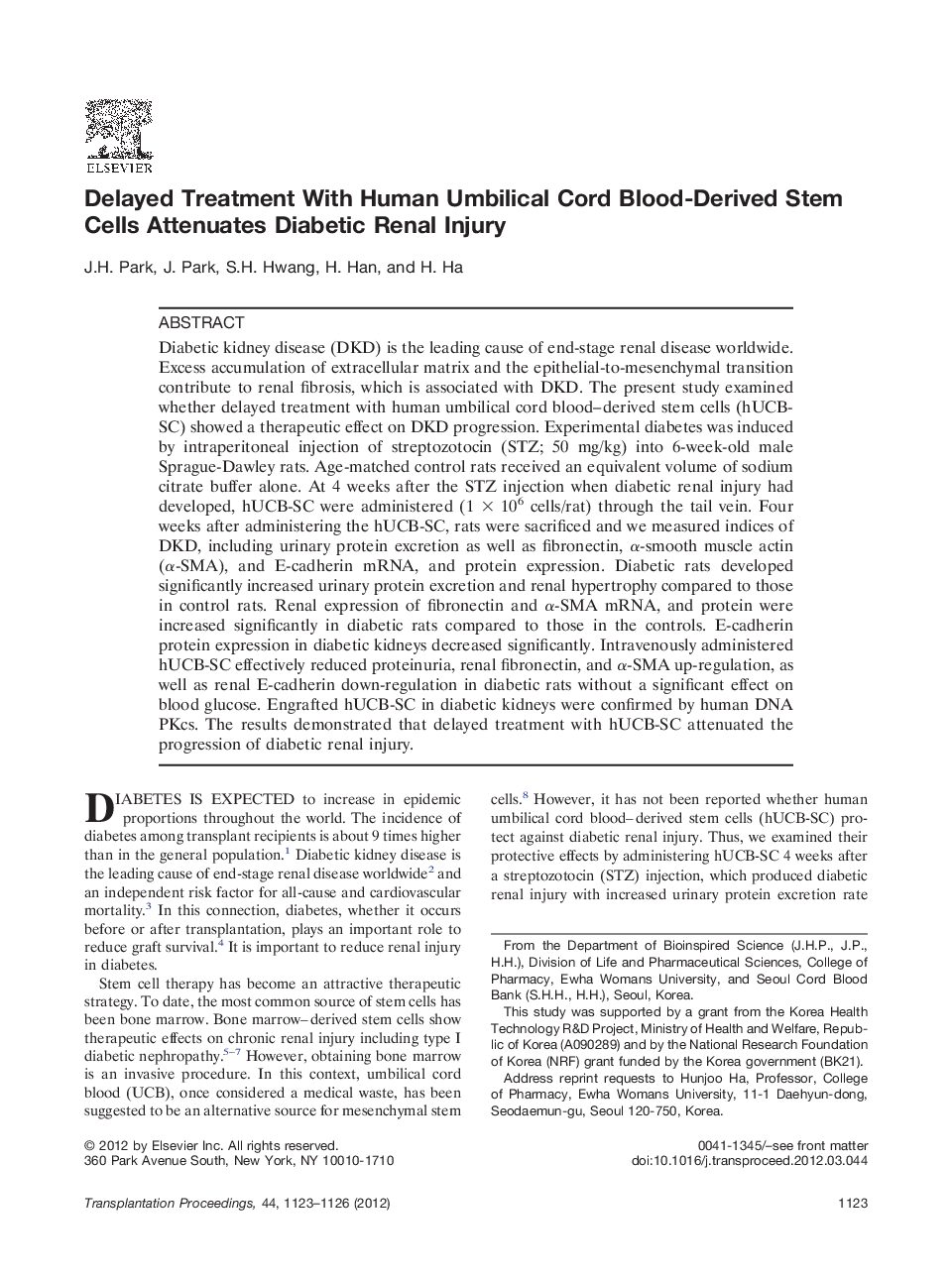| Article ID | Journal | Published Year | Pages | File Type |
|---|---|---|---|---|
| 4256881 | Transplantation Proceedings | 2012 | 4 Pages |
Diabetic kidney disease (DKD) is the leading cause of end-stage renal disease worldwide. Excess accumulation of extracellular matrix and the epithelial-to-mesenchymal transition contribute to renal fibrosis, which is associated with DKD. The present study examined whether delayed treatment with human umbilical cord blood–derived stem cells (hUCB-SC) showed a therapeutic effect on DKD progression. Experimental diabetes was induced by intraperitoneal injection of streptozotocin (STZ; 50 mg/kg) into 6-week-old male Sprague-Dawley rats. Age-matched control rats received an equivalent volume of sodium citrate buffer alone. At 4 weeks after the STZ injection when diabetic renal injury had developed, hUCB-SC were administered (1 × 106 cells/rat) through the tail vein. Four weeks after administering the hUCB-SC, rats were sacrificed and we measured indices of DKD, including urinary protein excretion as well as fibronectin, α-smooth muscle actin (α-SMA), and E-cadherin mRNA, and protein expression. Diabetic rats developed significantly increased urinary protein excretion and renal hypertrophy compared to those in control rats. Renal expression of fibronectin and α-SMA mRNA, and protein were increased significantly in diabetic rats compared to those in the controls. E-cadherin protein expression in diabetic kidneys decreased significantly. Intravenously administered hUCB-SC effectively reduced proteinuria, renal fibronectin, and α-SMA up-regulation, as well as renal E-cadherin down-regulation in diabetic rats without a significant effect on blood glucose. Engrafted hUCB-SC in diabetic kidneys were confirmed by human DNA PKcs. The results demonstrated that delayed treatment with hUCB-SC attenuated the progression of diabetic renal injury.
